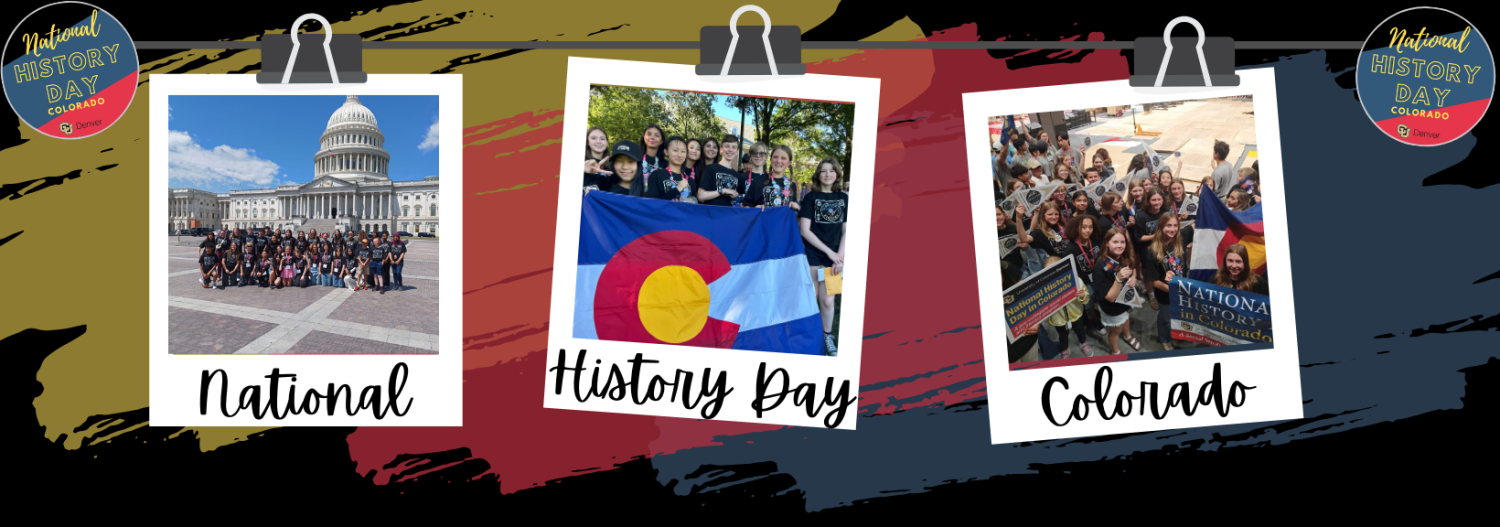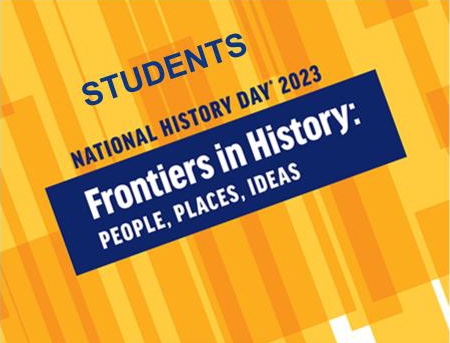
- Account Login
- Get a Library Account
- Checkout, Renew & Return
- Update My Account
- Text Message Notifications
- Full Catalog
- Local History Search
- Find a Great Read
- Article Databases
- Staff Picks
- eMagazines & News
- OverDrive for Kids
- OverDrive Digital Magazines
- Kanopy Streaming
- Kanopy for Kids
- New York Times Digital
- BoulderReads Literacy
- Continuing Education
- Teach yourself Tech
- ESL & Citizenship
- BVSD Student 1 Portal
- Career Online High School
- Creativebug
- Gale Courses
- Homework Help Now
- Online Job Coaching
- BLDG 61 Makerspace
- Classes & Activities
- Performances & Presentations
- One Book One Boulder
- Seed to Table
- Full Calendar
- Summer of Discovery
- Exhibitions
- Meeting & Study Rooms
- Canyon Theater
- BLDG 61: Makerspace
- Teen Spaces
- Book a Bike
- Class Visits
- Community Groups
- Computers, Internet & Printing
- Educator Resources
- Kids & Family
- Paper & Spine Used Bookstore
- Scanning & Copying
- Ask a Librarian
- Community Help Guide
- Culture Pass
- Tech Help/Apoyo Técnico Personalizado
- Home Delivery Program
- Interlibrary Loan
- Local History and Genealogy Research
- Suggest a Purchase
- National History Day
- Process Paper & Thesis
- Getting Started--Background Sources
- Primary Sources & Local History
- Citation & Bibliography
- Teacher Resources

Research Rendezvous
Missed the live Mastering your Thesis event? Watch the recording here, as Kayla Gabehart shows you how to form and revise your thesis. FAQs at the end answer students' questions about NHD in Colorado.
More information from National History Day in Colorado
Thesis Statement
From NHD website:
Develop a Thesis Statement NHD projects should do more than just tell a story. Every exhibit, performance, documentary, paper and website should make a point about its topic. To do this, you must develop your own argument of the historical impact of the person, event, pattern or idea you are studying. The point you make is called a thesis statement. A thesis statement is not the same as a topic. Your thesis statement explains what you believe to be the impact and significance of your topic in history. Example:
Topic: Battle of Gettysburg Thesis Statement: The battle of Gettysburg was a major turning point of the Civil War. It turned the tide of the war from the South to the North, pushing back Lee’s army that would never fight again on Northern soil and bringing confidence to the Union army.
- Tackling the Thesis [PDF]
- Handout from Minnesota Historical Society [PDF]
- Thesis Creator Helpful template to guide you through your working thesis
- Thesis Organizer & Checklist [PDF]
Videos from NHD Affiliates
Process Paper
Form NHD website Rule 15 | Process Pape r
All categories, except historical paper, must include a process paper with the entry. It must describe in 500 or fewer words how you conducted your research and created your entry. The process paper must include four sections that explain: 1. how you chose your topic; 2. how you conducted your research; 3. how you selected your presentation category and created your project; and 4. how your project relates to the NHD theme.
You can view sample process papers at http://www.nhd.org/CreatingEntry.htm .
- Process paper rules [PDF]
- What is a Process Paper? [PDF]
Services & Help
Call 303-441-3100
- Ask a Librarian Submit a question online and get an answer by email. Use email for brief inquiries, not research help.
- << Previous: Citation & Bibliography
- Next: Teacher Resources >>
- Last Updated: May 17, 2024 1:28 PM
- URL: https://research.boulderlibrary.org/history
- Find A Local Contest
- Get Started
- Contest Rules & Evaluation
- Find Your Local Contest (Affiliate)
- National Contest
- Classroom Tools
- Teaching Research Skills
- Advising NHD Students
- News & Events
- Why NHD Works
- People of NHD
- Find Your Local Affiliate
- 50 Years of NHD
- Sponsors and Supporters
- Volunteer to Judge
- Alumni Network
Get Started on Your Project
A National History Day ® (NHD) project is your way of presenting your historical argument, research, and interpretation of your topic’s significance in history. NHD projects can be created individually or as part of a group. There are two entry divisions: Junior (grades 6–8) or Senior (grades 9–12). After reading the Contest Rule Book and learning about the annual theme , you’re ready to dig in!

Your Guide to Getting Started
Choose your topic .
A topic is the part of history you want to study. Choose a topic that is interesting to you, that fits the annual theme , and that is not too big and not too small. Studying the entire American Revolution is probably too big. At the same time, studying one decision made by General George Washington on one day in the Revolutionary War might be too small. Just like Goldilocks, find a topic that is “just right.”
Can I select any topic I want?
Absolutely! NHD encourages you to explore historical topics ( local , regional, national, or global ) from any time period. Start by checking with your teacher. Teachers might have certain guidelines specific to their classrooms. All topics also need to be approved by your parent or guardian.
How old should my topic be?
Your topic must be old enough that historians are writing about it. Historians tend to wait until enough time has passed that the topic feels complete and they can answer the “So What?” question about the topic; i.e., why is the topic important to know about? You will answer the same question about your topic.
If you are interested in something that is happening currently or very recently, consider exploring that topic in history. For example, you might be interested in how people today are coping with a dwindling water supply. Look back to struggles over access to water in the past. You might find a great topic that way!
Start Your Research
Once you select a topic, you are ready to begin your research by finding out what was going on before and during the time that your topic occurred. This is called historical context and it’s where historians begin.
Historians use these and other terms when talking about the study of history. Refer to the Student Glossary as you come across historical terms and concepts.
Historical context sets the stage for your topic. To learn about historical context, historians use two key types of resources: primary and secondary sources. Remember to keep track of your research sources so you can create your bibliography.
Secondary Sources
Secondary sources tell, analyze, or interpret events. Historians create secondary sources based on their reading of primary sources. Secondary sources are usually written decades, if not centuries, after the event occurred by people who did not live through or participate in the event.
Begin your research with secondary sources to help you build your knowledge of the big picture surrounding your topic. To understand the connections between your topic and the time period, ask yourself:
- Why did my topic happen at this particular time and in this particular place?
- What were the events that came before my topic?
- How was my topic influenced by the economic, social, political, and cultural climate of the time period?
Primary Sources
Primary sources are the most exciting part of history. These are the sources created during the time that the event took place. Be sure to look at primary materials created by as many people as you can. Looking at various viewpoints will help you develop multiple perspectives.
Examples of primary sources include: documents, artifacts, historic sites, songs, or other written and tangible items created during the historical period you are studying.
While it can be tempting to jump right to the primary sources, the historical context of your topic that you learn from secondary sources will help you make sense of the primary sources that you find.
Conducting Interviews
Interviews are not required for an NHD project. Requests to interview historians or other secondary sources are inappropriate. Historians do not interview each other. Instead, you might conduct oral history interviews of those who were eyewitnesses to the events. Oral histories are primary sources. Learn more about g uidelines for conducting interviews and the difference between oral histories and interviews with experts.
Develop a Historical Argument
NHD projects must do more than just tell a story. Historians create a historical argument to state what they will prove through their writing. The historical argument is a clear and specific two or three-sentence statement that contains the how and why of what historians found in their research.
After you do your research and analyze your sources, your ideas about the significance of your topic in history will take shape. Then it is time for you to develop your historical argument.
Your research provides the evidence to support the argument you wish to make.
Example Topic: Battle of Gettysburg
Historical Argument: The Battle of Gettysburg was a major turning point in the U.S. Civil War. It turned the tide of the war from the South to the North. After the battle, Lee’s army would never fight again on Northern soil and the Union army gained confidence.
Select a Contest Category
NHD offers five creative categories in each division (Junior: grades 6–8, or Senior: grades 9–12). The documentary, exhibit, performance, and website categories offer both individual and group participation options. The paper category allows individual participation only. Groups may include two to five students.
Documentary
A documentary is a ten-minute film that uses media (images, video, and sound) to communicate your historical argument, research evidence, and interpretation of your topic’s significance in history.
A documentary should reflect your ability to use audiovisual equipment to communicate your topic’s significance. The documentary category will help you develop skills in using photographs, film, video, audio, computers, and graphic presentations. Your presentation should include primary source materials and also must be an original production. To produce a documentary, you must have access to equipment and be able to operate it.
Documentary Resources
Documentary project checklist, documentary evaluation form, documentary project example 1: baseball diplomacy, documentary project example 2: aiming for a diplomatic future.
An exhibit is a three-dimensional physical and visual representation of your historical argument, research evidence, and interpretation of your topic’s significance in history.
Exhibits use color, images, documents, objects, graphics, and design, as well as words, to tell your story. Exhibits can be interactive experiences by asking viewers to play music, look at a video, or open a door or window to see more documents or photos.

Exhibit Resources
Exhibit project checklist, exhibit evaluation form, exhibit project example 1: black studies now, exhibit project example 2: the radium girls.
A paper is a written format for presenting your historical argument, research evidence, and interpretation of your topic’s significance in history.
A paper is a highly personal and individual effort, and if you prefer to work alone this may be the category for you. Papers depend almost entirely on words to tell the story, and you can usually include more information in a paper than in some of the other categories. Various types of creative writing (for example, fictional diaries, poems, etc.) are permitted but must conform to all general and category rules.
Paper Resources
Paper project checklist, paper evaluation form, paper project example 1: women strike for peace, paper project example 2: soil conservation service, performance.
A performance is a dramatic portrayal of your historical argument, research evidence, and interpretation of your topic’s significance in history.
The performance category is the only one that is presented live. Developing a strong narrative that allows your subject to unfold in a dramatic and visually interesting way is important. Memorizing, rehearsing, and refining your script is essential, so you should schedule time for this in addition to research, writing, costuming, and prop gathering.
Performance Resources
Performance project checklist, performance evaluation form, performance project example 1: caroline chisholm, performance project example 2: debate over the bill of rights.
A website is a collection of interconnected web pages that uses multimedia to communicate your historical argument, research evidence, and interpretation of your topic’s significance in history.
A website should reflect your ability to use website design software and computer technology to communicate your topic’s significance in history. To create an NHD website project, you must use NHDWebCentral ® .
Website Resources
Nhdwebcentral ® instructions, website project checklist, website evaluation form, write your process paper & annotated bibliography.
All NHD projects have two required elements in common—a process paper and an annotated bibliography.
Process Paper
A process paper is a description of how you conducted your research, developed your topic idea, and created your entry. The process paper must also explain the relationship of your topic to the contest theme. You’ll find these and further information about writing your Process Paper in the Contest Rule Book .
Annotated Bibliography
An annotated bibliography is a formatted list of the sources that you used in your research. The main goals of an annotated bibliography are to:
- Give credit to the original authors, avoiding plagiarism
- Show the value of a source to the research
- Reflect varied perspectives with different types of sources
- Provide the source information so that readers can explore those sources on their own
An annotated bibliography is required for all categories. Read the Contest Rule Book to learn about the detailed requirements.
NoodleTools: NHD and NoodleTools partner together to help you organize your research sources. NoodleTools can help you track your sources, take notes, organize your ideas, and create your annotated bibliography. Your teachers can sign up and receive account access for all of their students for one year. The program allows teachers to see the progress their students have made and offer direct electronic feedback.
Find Your Local Contest
National History Day competition begins at the local level. Registration, contest dates, submission deadlines, and further supporting materials are available through each affiliate’s local contest website.
Project Examples
Get inspired by NHD projects submitted in previous years’ contests.
Create an Entry
Resources to help you start and complete your NHD entry
National History Day ®
Influencing the future through discovery of the past
- Job Openings
Read our newsletter for the latest resources, events, and training.
We use cookies to analyze how visitors use our website so we can provide the best possible experience. By clicking “Accept All Cookies”, you agree to the storing of cookies on your device. For more information, please view our Privacy Policy.
Skip to Content

- Campus Directory
- Events Calendar
- Human Resources
- Student Services
- Auraria Library
- CU Denver Police
- University Policies
Schools and Colleges
- College of Architecture and Planning
- College of Arts & Media
- Business School
- School of Education & Human Development
- College of Engineering, Design and Computing
- Graduate School
- College of Liberal Arts and Sciences
- School of Public Affairs
Campus Affiliates
- CU Anschutz Medical Campus
- CU Colorado Springs
Other ways to search:
- University Directory
NHDC Sample Papers

Official NHD Rule Book
Disqualification, a project may be disqualified on three grounds:.
- Plagiarizing all or part of an NHD project. Please note that failing to give proper credit is plagiarism.
- Reusing , individually or as a group, a project (or research from a project) from a previous year, or entering a project in multitple contests or entry categories within a contest year.
- Tampering with any part of the project of another student.
Paper Tools
- Website Feedback
- Privacy Policy
- Legal Notices
- Accreditation
© 2021 The Regents of the University of Colorado , a body corporate. All rights reserved.
Accredited by the Higher Learning Commission . All trademarks are registered property of the University. Used by permission only.

NHD 2023: Topic Selection, Research, Sources & More

Students, we have compiled a big list of resources to help you dig deep into National History Day (NHD) projects.
Understanding NHD Projects
- Read the Contest Rule Book carefully. English | Spanish
- Watch the NHD Contest Rules video .
- rules video
- project checklist
- evaluation form
- Ask an NEH Expert videos 2017 | 2018
- virtual exhibit guidelines
- virtual performance submissions
- NHDWebCentral ® website builder
- NHDWebCental FAQs
- NHDWebCental instructions & videos
- Scroll though the Contest FAQ .
- Watch the Evaluation Forms video .
- Review the CMHF “Students Become Historians” PowerPoint .
- View award-winning projects from previous contests .
- Ask your teacher if they have examples of high-quality student projects from previous years.
Exploring the theme
Each year NHD chooses a particular theme that must be the focus of student projects. Before doing anything else, make sure you understand the theme.
- Read the 2023 Theme Book— Frontiers in History: People, Places, Ideas .
- Watch the 2023 Theme Introduction Video on YouTube or Vimeo .
- Discuss how the theme of Frontiers in History relates to people, places, events, technologies, and issues you’ve learned about earlier this year and in previous years and make a list of topics that interest you.
- Free write about what the theme means to you personally or to someone you know.
- Complete the NHD 2023 Theme Graphic Organizer . fillable PDF
Investigating & narrowing topic choices
- Review the CMHF History Fair and You handout.
- Flip through newspaper and magazine articles about current events that you find interesting or concerning and then consider the historical and local angles to those topics. (Remember, your project may not be about a current event.)
- Browse through a history textbook.
- Check out local and state historical sites, museums and websites.
- Search the Primary Source Nexus for additional topic ideas (from the top menu bar, right).
- Watch the Thinkport Inquiry Kits for History Day Students video to get some ideas.
- Connecticut topic ideas
- NHD Colorado Student Workbook
- Minnesota topic categories & topic lists: Novice | Advanced
- Create an outline or mind map of topic ideas that interest you.
- Consider refining your topic according to the following sequential steps: theme, interest, broad topic, narrow topic, thesis.
- Topic Development Worksheet
- Topic Selection Worksheet
- Does the topic relate to the 2023 NHD) theme— Frontiers in History: People, Places, Ideas ?
- Does the topic relate to local or state history?
- Does the topic really interest you?
- Do you have a personal connection to the topic? (It’s not necessary, but it can be a good thing.)
- Will you be able to find enough primary and secondary sources to thoroughly research the topic?
- Why is this topic important?
- What will people learn from your project?
Getting started on your project
- CMHF Guide to Developing Questions
- CMHF Thesis PowerPoint .
- CMHF History Fair Thesis: What’s it all About activity
- CMHF How to write a thesis worksheet and sample Thesis Rubric
- MNHS Narrowing your topic & incorporating the theme video
- Thinkport Writing a Thesis Statement self-paced learning module
Researching your topic
- NHD Guide to Research & Historical Argumentation
- Review the CMHF Research Journey PowerPoint
- NHD Quick Tip Video: What is Historical Significance?
- NHD Historical Context graphic organizer
- CMHF History Fair Note-Taking Guide with Fill-ins
- CMHF History Fair Notes Worksheet
- NHD Quick Tip: Wide Research
- Finding Primary Sources in Secondary Sources
- How to Use Google Books
- Mining Wikipedia
- Smart Searching the Library of Congress
- Smart Site Searching
- NHD Research & Writing workshop webinar video recording
- Thinkport Creating a Research Project self-paced learning module
- Sample oral history interview request letter .docx
- Sample historian interview request letter .docx
- Sample interview release form .docx
Selecting & using sources
- What Are Primary Sources?
- Selecting Sources: Tertiary, Secondary, Primary
- Selecting Primary Sources for Research Projects
- Using the Library of Congress Online: a Guide for Middle and High School Students
- Thinkport Digging for Historical Sources self-paced learning module
- Thinkport Evaluating Sources self-paced learning module
- Thinkport Analyzing Political Cartoons self-paced learning module
- Thinkport Analyzing Charts, Graphs, and Tables self-paced learning module
- Historical Thinking Skills, Part 1: Sourcing and the Three Cs NHD video
- Historical Thinking Skills, Part 2: Perspective, Agency, and Hindsight NHD video
- NHD Quick Tip Video: Why Include Multiple Perspectives?
- To Interview or Not to Interview video
- Ask an NEH Expert: Evaluating Sources
Citing sources
- Tech Tools: Citation Tools
- Citing Digitized Sources from the Library
- Thinkport How to Cite the Right Way self-paced learning module
- Creating an Annotated Bibliography
- Thinkport Annotated Bibliography (Chicago style) self-paced learning module
Putting it all together
- NHD Quick Tip Video: Student Voice
- Historical Thinking Skills, Part 3: Evidence, Counter-Evidence, and Arguments NHD video
- Historical Thinking Skills, Part 4: Organizing an Argument NHD video
- Historical Argumentation for Students 2022 NHD video
- Navigating the Historical Argumentation Webinar Series
- Organize Your Argument (.pdf)
- Argumentation Plan (.docx)
- Building an Argument
- Writing and Editing
- Every NHD Student Is a Writer video

IMAGES
VIDEO
COMMENTS
Project Example. Get inspired by NHD projects submitted in previous years’ contests. Disclaimer: These projects are presented for illustrative purposes only and serve as an example. It may not adhere to the NHD Contest Rule Book’s latest rules, guidelines, or best practices.
Example #1 Thesis Statement Examples (112 words) During WWI, W.H.R. Rivers served in the British Expeditionary Force as a General, where he observed the symptoms of stricken soldiers. As an accomplished psychiatrist, Rivers concluded that the symptoms displayed were psychological in nature.
The point you make is called a thesis statement. A thesis statement is not the same as a topic. Your thesis statement explains what you believe to be the impact and significance of your topic in history. Example: Thesis Statement: The battle of Gettysburg was a major turning point of the Civil War.
Paper Project Example 3: A “Social Frontier”: Boy Scouts, Progressive Education, and the Turner Thesis. Disclaimer: This project is presented for illustrative purposes only and serves as an example. It may not adhere to the NHD Contest Rule Book’s latest rules, guidelines, or best practices.
A thesis statement is a central thought that holds your entire National History Day (NHD) project together. In the beginning, we like to call this a working thesis, because as you gather your research, this thought can evolve.
A thesis statement is a central thought that holds your entire National History Day (NHD) project together. In the beginning, we like to call this a working thesis, because as you gather your research, this thought can evolve.
Here are some examples of thesis statements. Topic: Parameters (Date, time period, range of years, etc.): Theme words: Your argument (A debatable argument, NOT a statement of fact): Thesis draft: Write your initial thesis here. Keep in mind, you will revise this more than once before your project is finalized.
A National History Day ® (NHD) project is your way of presenting your historical argument, research, and interpretation of your topic’s significance in history. NHD projects can be created individually or as part of a group. There are two entry divisions: Junior (grades 6–8) or Senior (grades 9–12). After reading the Contest Rule Book ...
NHDC Sample Papers. "'A Look Over the Mountain'; Triumph Over Discrimination in Denver's Five Points Neighborhood". By Luke Ortiz-Grabe, SkyView Academy. National Finalist--Senior Paper, 2019 National Contest. "China's One Child Policy: Bringing Triumph to the Economy, but Tragedy to the People". By Ruby May, St. Columba School.
Consider refining your topic according to the following sequential steps: theme, interest, broad topic, narrow topic, thesis. Complete these CMHF worksheets. Topic Development Worksheet